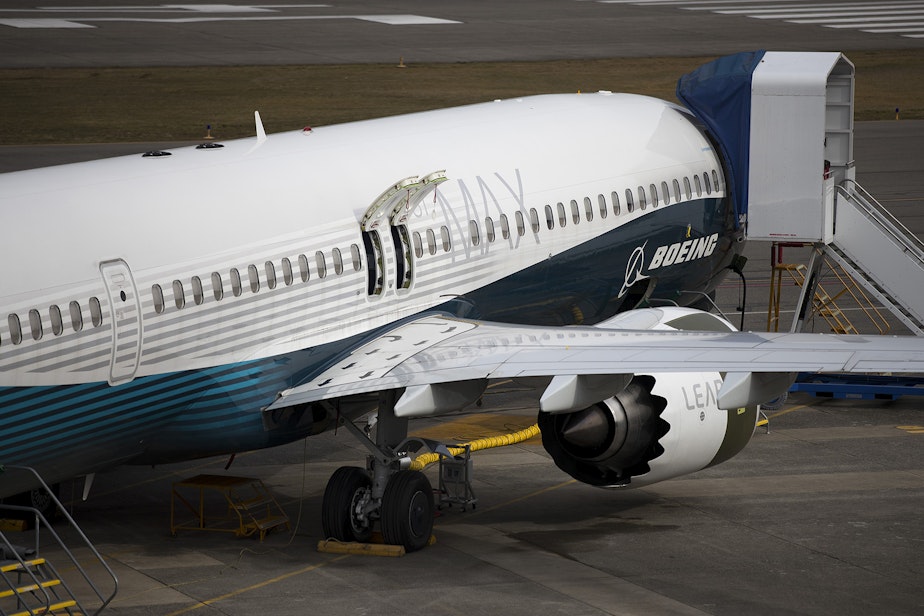Billions worth of Boeing planes sit on the tarmac, waiting for the grounding to end

The grounding of the 737 MAX cost Boeing a billion dollars in March.
The company said it could not deliver 50 planes because of the worldwide grounding, and the number of planes continues to grow.
Boeing has had to find places to store planes it has produced but cannot yet deliver. One place to see them is at Boeing Field. From the ramp at S Graham Street and Swift Ave. South, 23 MAXs are visible. Others are parked near Boeing's 737 manufacturing plant in Renton.
Boeing says so far, the cash crunch caused by these un-deliverable planes not a big problem. However, it is conserving cash by suspending a share buyback program. And it’s reduced the production rate for 737s without immediate layoffs.
Boeing also disclosed that the crisis over the 737 MAX will add to the cost of producing the entire, multi-year production run by an estimated $1 billion. But the company said it had made no error in designing or producing the MAX.
“There is no technical slip or gap here,” Boeing CEO Dennis Muilenburg said in a conference call with financial analysts. “We know that both accidents were a series of events….ultimately there were actions or actions not taken that contributed to the final outcome.”
“There was no surprise or gap or unknown here or something that slipped through a certification process," Muilenburg added. "Quite the opposite.”
Boeing said it has set up a situation room with an executive team that meets daily. It would not talk about profitability for its commercial airplanes division until the uncertainty over the 737 MAX had ended.
The company delivered its first-quarter financial report on Wednesday morning. It said that revenue, profit and cash flow all fell from a year earlier.
That's a direct impact of the crisis involving the crashes of two MAX jets.
The second crash was in early March just three weeks before the end of that fiscal quarter.
And Boeing said it can't tell investors what to expect for the rest of the year, given the uncertainty over when regulators will let the 737 MAX return to the skies.
Boeing was explaining its earnings report to investors and analysts on Wednesday morning.
Here are quick numbers from Boeing’s report:
Earnings from operations: $2.35 billion, down 18 percent from 2018
Net earnings: $2.149 billion, down 13 percent
Earnings per share: $3.75, down 10 percent
Operating cash flow: $2.788 billion, down 11 percent
Free cash flow: $2.287 billion, down 17 percent
Cash: $6.8 billion, down by $0.9 billion
------------------------------------------------------------------------------
ORIGINAL REPORT:
Boeing releases its first-quarter earnings report on Wednesday. It comes after two fatal crashes that have left 737 Max jets grounded for weeks.
So should shareholders brace for bad news?
"Orders have been pretty awful this quarter so I think everyone's digested that,” said aviation analyst Richard Aboulafia. “So it's really just a question of deliveries and, of course, profit margins."
Aboulafia said he's also eager to hear Boeing executives respond to problems with the 787 program in South Carolina and the Air Force tanker program in Everett – both subjects of a stinging New York Times story over the weekend.
"Tough questions about the Max, but also the issues involving 77 Charleston and discussion of that, and KC-46 and the suspension there and what it means for the company overall," he said.
Boeing's stock has dropped about 15 percent since its all-time high at the beginning of March.




